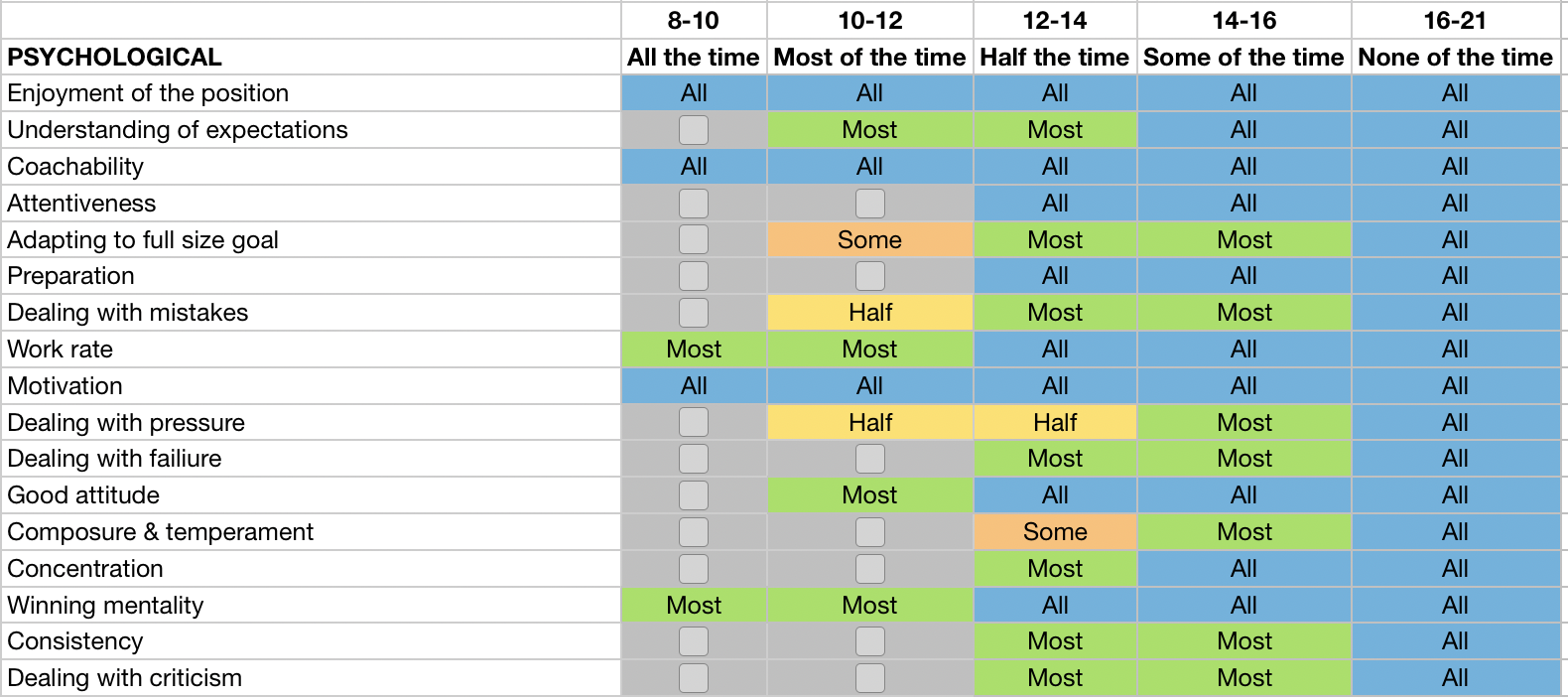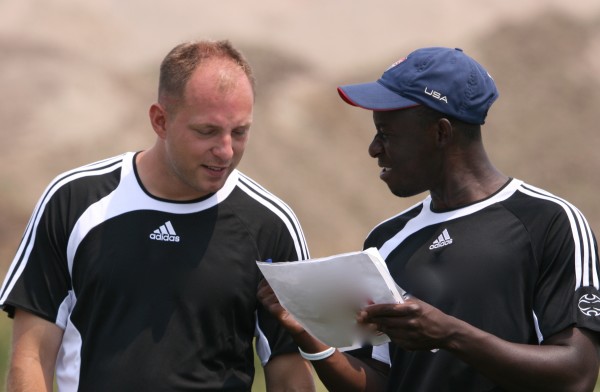Having filled out the evaluations and gone through the self-analysis sheets, I wanted to share some thoughts on what it actually takes for goalkeepers to get top marks in different aspects of the game.
I believe that many players and parents are unaware of what is needed to really be a top-class goalkeeper.
The key to being a top goalkeeper is successful consistency in as many of the goalkeeping core competencies as possible… therefore, our evaluations are graded on how often a goalkeeper does each competency.
See below to see if you actually meet the criteria. Evaluation is marked on how often the goalkeeper does each competency – All the time, most of the time, half the time, some of the time or none of the time. If the score is none of the time, it may be because the goalkeeper has not yet been taught this aspect or does not understand what is being asked of the goalkeeper in that situation.
You can see the Technical sheet here
You can see the Tactical sheet here
You can see the Physical sheet here
Psychological
Adapting to full-size goal – Dealing with problems that arise from playing on a bigger field /
goal
Everything from height of crossbar to taking goal kicks in a larger area.
Preparation – For training & games. Punctuality, care of equipment and suitability of equipment.
It is recognized that all players prepare differently. Some evidence of players being marked down.
Spare gloves, a towel for wet conditions, cap to avoid the sun in eyes, baseball sliders. No squeezy bottle in goalmouth for keeping gloves at peak condition, wiping down dirt on gloves and keeping mouth watered.
A well-prepared goalkeeper will check out both goal mouths prior to warm up to consider potential hazards and discuss with the coach what side would be best to start. ( due to wind, slope, sun or goalmouth conditions )
A warm-up will consist of all the elements of goalkeeping and the goalkeeper should demand this either from the coach whether it is with another goalkeeper, a player or the coach himself.
The obvious wearing of warm clothing during cold games and/or the use of bengay / icy hot, along with surgery gloves for wet conditions.
Dealing with mistakes – Composure, learning opportunity & confidence
Does the mistake affect the goalkeeper’s performance or more importantly the team? To get top marks, a goalkeeper would speak to their coach after a mistake to recognize the error and tell him or her what they would do differently. Evidence that the goalkeeper would have gone away to improve on the error made.
Work rate – During training. Evidence of practice when away from Everton.
Does the goalkeeper give 100%?
Coachability – The ability to take on board information.
Starting with a 3 out of 5.
Higher marks if
a) player has shown improvement by implementing what has been asked
b) asks questions if not sure
c) gives 100% and encourages others to do so
d) offers to help
e) keeps good dialogue so I’m aware of performances
Lower marks if
a) low attendance or if late
b) brings the level of work rate down
c) Talks when the coach talks
d) Making the same errors over and over again despite having been told what to do
e) does not listen to instructions
EXPECTATIONS PER AGE

See my post on What makes a good goalkeeping evaluation?

Leave a Reply